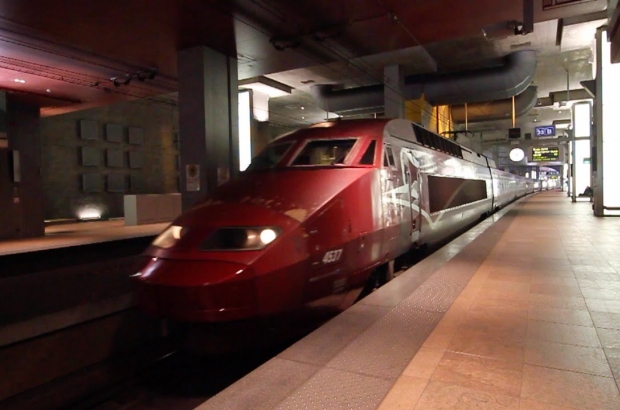- Daily & Weekly newsletters
- Buy & download The Bulletin
- Comment on our articles
Brussels has one of Europe's biggest price differences between air and rail travel, study finds
A new study by environmental organisation Greenpeace has found, that compared to other big European cities, in Brussels the difference in price between air and rail travel to other major destinations is significant.
On average, the train is twice as expensive as the plane, with the fares being as much as 30 times higher in some cases, the report found.
Greenpeace analysed 112 European routes, comparing air and rail fares on nine different days.
Of the 10 journeys studied from Brussels, six were regularly found to be cheaper than air: London, Vienna, Madrid, Berlin, Prague and Budapest. The only route that was cheaper by train on every occasion was the one from Brussels to Hamburg.
The route between Brussels and Madrid, for instance, can be up to 15 times more expensive by train. On average, the rail journeys cost 2.6 times more.
Cheap plane tickets exist in part due to the tax advantages given to the airline sector. Kerosene, the aircraft fuel, has not been taxed since 1944. Airline tickets are also exempt from VAT, while train tickets are not and will often also present additional fees.
“This report shows how much European citizens are incentivised to fly,” said Herwig Schuster, transport expert for Greenpeace's Mobility for All campaign.
“Airlines enjoy outrageous tax advantages, and low-cost airlines in particular have used every trick to offer flights at shameful prices.”
The Greenpeace study also notes the global impact planes have on the environment “can be 80 times worse than that of the train”.
According to the cautious estimates of the European Agency for the Environment, planes emit 4.84 times more greenhouse gas than trains.
The results of a study by the European Environment Agency showed that the fuel efficiency of air and rail passenger transport improved by 12% and 13% respectively over the period from 2014 to 2018.
For rail, this is mainly the result of the electrification of the rail network and the lower carbon intensity of the EU electricity mix. For aviation, the gains are largely due to the adoption of more efficient aircraft.
Many European countries are seeking to relaunch rail to reduce the carbon impact of the transport sector.
Since May, a €49 per month rail subscription has been available in Germany. The country wants to promote the use of less polluting transport through this initiative, as well as help families struggling with high costs.
In Spain, free rail passes for regional and suburban trains were launched in September.
In Austria, a "climate ticket" introduced in 2021 allows passengers to use all public transport in the country, mainline trains included, for €1,095 per year, contributing to a "boom" in train travel, according to the operator ÖBB.


















